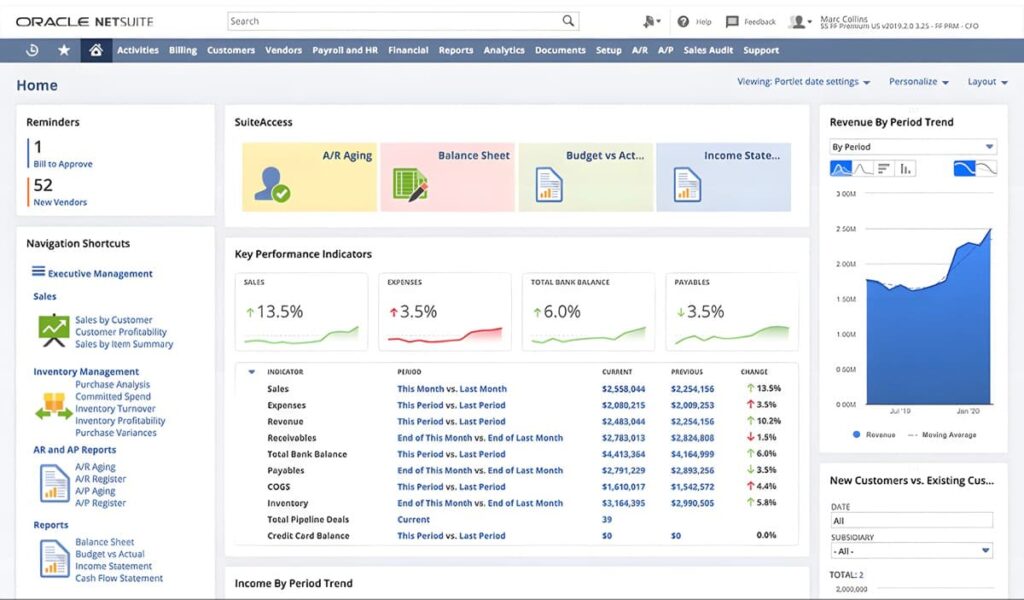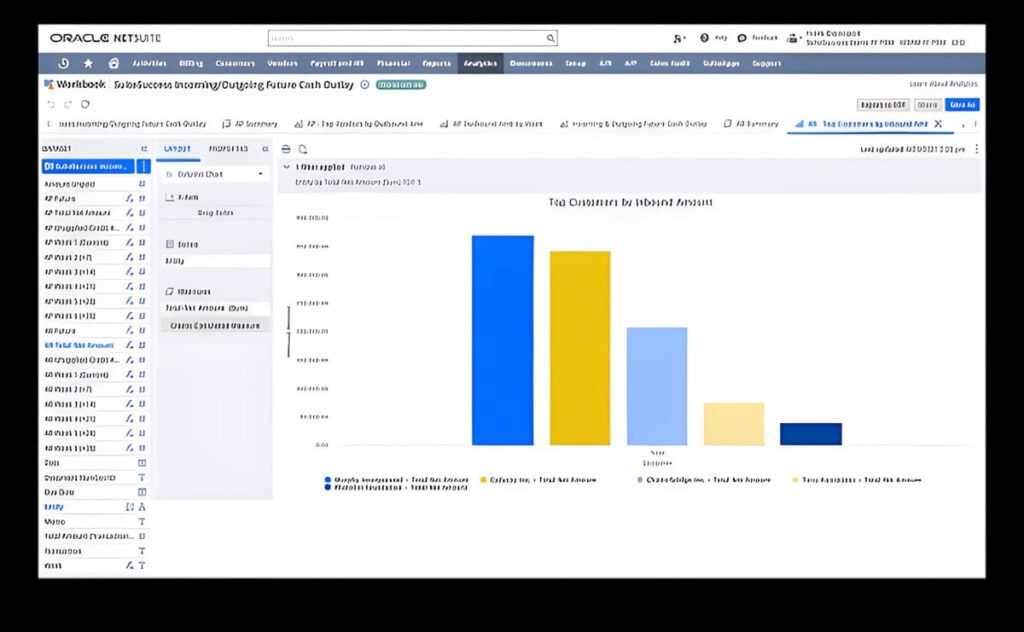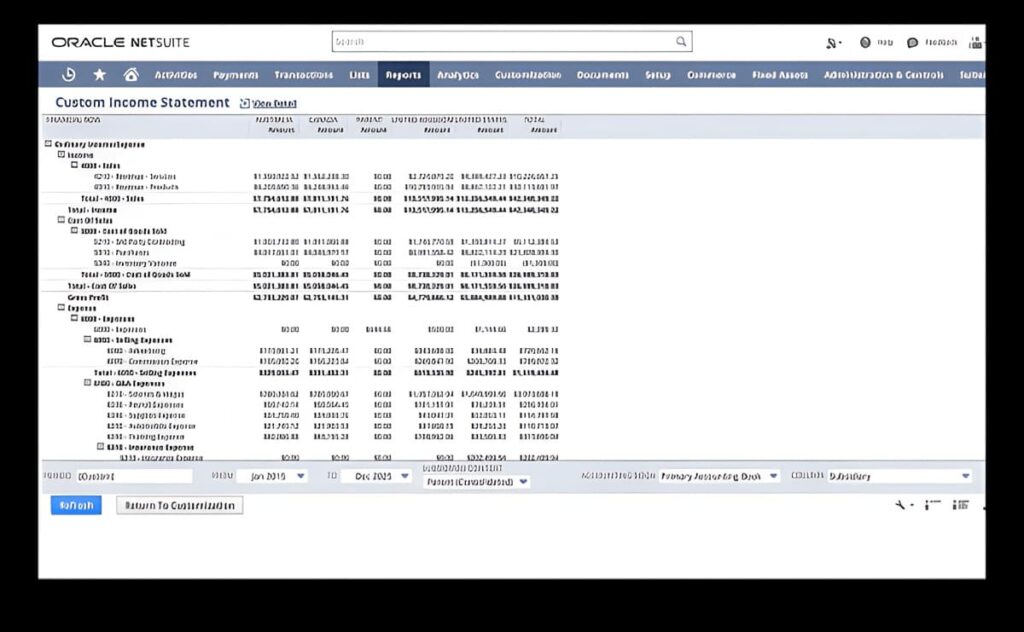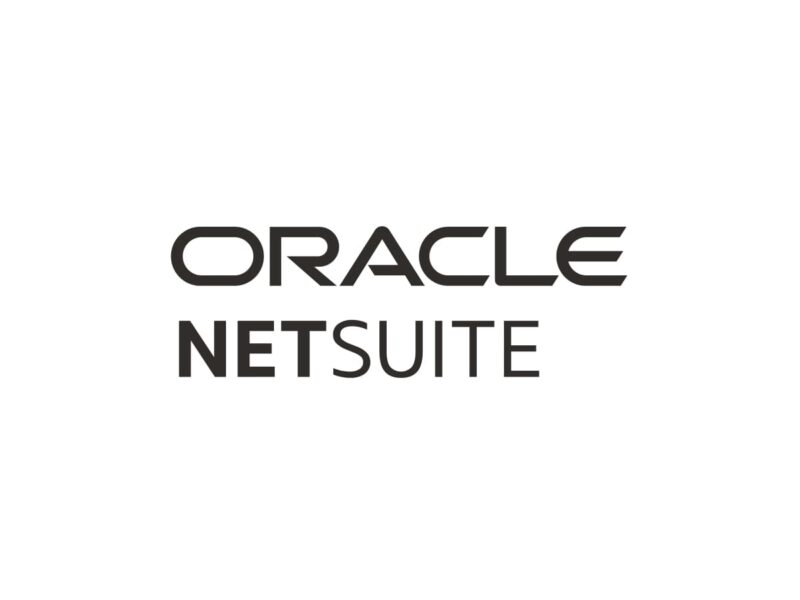Table of Contents
Embark on an insightful journey through the intricacies of NetSuite ERP System, the cloud-based solution transforming businesses worldwide. This article delves into its key features, performance metrics, and provides a balanced view of its advantages and disadvantages. Gain expert insights and answers to top FAQs, equipping you with a well-rounded understanding of NetSuite ERP’s impact on the digital landscape.
Key Features of NetSuite ERP System

The NetSuite ERP system is renowned for its comprehensive suite of features designed to support and streamline business operations across various industries. Here’s a detailed exploration of its key features:
- Financial Management: NetSuite ERP offers robust financial management capabilities, including general ledger, accounts receivable, accounts payable, and financial reporting. This enables businesses to manage their financial data in real time, improve financial compliance, and drive financial close efficiency.
- Supply Chain Management: With its supply chain management features, NetSuite ERP helps businesses streamline their operations by managing and optimizing the flow of goods from production to delivery. This includes inventory management, order management, and warehouse management, ensuring timely delivery and cost efficiency.
- Customer Relationship Management (CRM): NetSuite’s integrated CRM system supports sales, marketing, and customer service processes. This allows businesses to maintain a 360-degree view of their customers, enhancing customer satisfaction and loyalty.
- E-commerce Capabilities: NetSuite ERP includes a powerful e-commerce platform that enables businesses to manage their online sales operations seamlessly. This includes web store design, shopping cart management, and order fulfillment, providing a unified customer experience across all channels.
- Human Capital Management (HCM): The system’s HCM feature streamlines HR processes, from recruitment to retirement. This includes managing employee records, payroll, benefits administration, and performance management, facilitating a more efficient and effective HR department.
- Project Management: NetSuite ERP offers project management tools that assist businesses in planning, executing, and monitoring project performance. This feature is particularly beneficial for service-based businesses that manage multiple client projects simultaneously.
- Analytics and Reporting: With real-time dashboards and analytics, NetSuite ERP provides businesses with critical insights into their operations. This feature allows for informed decision-making by tracking key performance indicators (KPIs) and generating comprehensive reports on financials, sales, inventory, and more.
- Cloud-based Platform: Being a cloud-based solution, NetSuite ERP ensures data is accessible from anywhere, at any time. This offers businesses flexibility, scalability, and reduced IT costs, as there’s no need for on-premise hardware and software maintenance.
These features illustrate why NetSuite ERP is considered a versatile and powerful tool for businesses seeking to automate and optimize their operations. By integrating various aspects of business management into a single platform, NetSuite ERP provides a seamless, efficient, and effective solution that supports business growth and adaptability.
Performance

Evaluating the performance of the NetSuite ERP system reveals its impact on operational efficiency, scalability, and real-time data accessibility for businesses. Let’s delve into these aspects in detail:
Operational Efficiency
NetSuite ERP significantly boosts operational efficiency through automation and streamlined processes. By automating routine tasks such as financial entries, inventory updates, and order processing, businesses can reduce manual errors and free up employee time for more strategic tasks. Its integrated nature means that information flows seamlessly across departments, ensuring that everyone has access to the latest data. This coordination improves decision-making and accelerates response times to market changes or customer demands.
Scalability
One of NetSuite ERP’s standout features is its scalability. As a cloud-based solution, it allows businesses to easily scale their operations up or down without significant upfront investments in IT infrastructure. Companies can add more users, processes, or departments into the system with minimal effort. This scalability is particularly beneficial for growing businesses or those with seasonal fluctuations, as it supports expansion into new markets or product lines without the need for a complete system overhaul.
Real-time Data Accessibility
NetSuite ERP provides real-time visibility into business operations, which is a game-changer for performance management. Managers and executives can access dashboards and reports that offer up-to-the-minute insights into financial performance, sales, inventory levels, and customer interactions. This capability enables informed decision-making, allowing businesses to react quickly to emerging trends, manage inventory more effectively, and tailor strategies to meet financial goals.
Performance Under Load
NetSuite’s cloud architecture is designed to handle high volumes of transactions and data without significant slowdowns. This means that as businesses grow and their data processing needs increase, NetSuite ERP can maintain its performance, ensuring that business operations continue smoothly. The system’s reliability and uptime are crucial for businesses that depend on continuous access to their operational data.
User Experience
The performance of NetSuite ERP is also reflected in its user experience. With a user-friendly interface and customizable dashboards, users can easily navigate the system and access the information they need. The system’s responsiveness and the ability to customize views and reports without needing IT support contribute to a positive user experience, increasing adoption rates and maximizing the value businesses get from their ERP investment.
Global Capabilities
For businesses operating internationally, NetSuite ERP’s performance extends to managing multiple currencies, tax regulations, and reporting standards. Its global business management capabilities enable companies to manage international operations efficiently, ensuring compliance and simplifying global financial consolidation.
In summary, the performance of the NetSuite ERP system is characterized by its ability to enhance operational efficiency, offer scalability, provide real-time data access, and maintain high performance under load. Its user-friendly design and global capabilities further cement its position as a leading ERP solution for businesses looking to optimize their operations and drive growth.
Pros
- Comprehensive Integration: NetSuite ERP offers a unified platform that integrates various business functions, such as finance, HR, sales, and operations, improving data flow and reducing manual entry errors.
- Real-time Visibility: With real-time dashboards and analytics, NetSuite provides immediate insights into business performance across all departments, enabling informed decision-making and timely responses to market changes.
- Cloud-based Solution: Being cloud-based, NetSuite ensures data accessibility from anywhere, at any time, enhancing flexibility for remote teams and reducing the need for costly IT infrastructure and maintenance.
- Scalability: NetSuite is highly scalable, supporting business growth with ease. Companies can add functionalities and modules as they expand, without significant disruptions to existing operations.
- Global Business Management: It supports multi-language, multi-currency, and compliance with various international tax regulations, making it an ideal solution for businesses with a global presence or ambitions.
- Customization and Flexibility: NetSuite allows for extensive customization to meet specific business needs, offering industry-specific solutions and enabling businesses to tailor the system to their processes.
Cons
- Implementation Time and Cost: The initial setup and customization of NetSuite ERP can be time-consuming and costly, particularly for complex businesses with unique processes that require extensive customization.
- Learning Curve: New users may find NetSuite’s comprehensive features and capabilities overwhelming, necessitating thorough training to ensure users can leverage the system effectively.
- Cost of Ownership: While cloud-based solutions reduce the need for in-house IT infrastructure, the subscription model and additional costs for extra modules or users can add up, making it a significant long-term investment.
- Performance Issues with Extensive Customization: Over-customization can lead to performance issues or complications during updates. Businesses need to balance customization needs with the system’s native capabilities.
- Dependency on Internet Connectivity: Being a cloud-based system, NetSuite’s accessibility is contingent on internet connectivity. Any connectivity issues can disrupt access to the system, affecting business operations.
- Support and Maintenance: Depending on the service level agreement, businesses might find support and response times varying. Some may require additional support plans for faster or more comprehensive service.
In conclusion, while NetSuite ERP offers a powerful suite of features to streamline business operations, improve efficiency, and support growth, businesses must carefully consider the initial investment, the potential learning curve for users, and the ongoing costs. The decision to implement NetSuite should align with the organization’s size, complexity, and long-term growth strategy to ensure it delivers the desired value.
Final Thoughts

Discussing the expertise and unique perspective on the NetSuite ERP system involves highlighting the specialized knowledge and insights that professionals or organizations might offer, based on extensive experience with or study of the platform. This expertise can significantly influence how businesses understand, implement, and utilize NetSuite to its fullest potential. Let’s delve into some aspects where expertise and unique perspectives play a crucial role:
Industry-Specific Solutions
Experts in NetSuite ERP often bring a deep understanding of how the platform can be tailored to different industries, such as retail, manufacturing, non-profit, or technology. Their unique perspective helps in customizing NetSuite’s functionalities to address industry-specific challenges, streamline operations, and leverage industry best practices effectively. This specialization ensures that businesses can maximize their ERP investment by aligning it closely with their operational needs and industry standards.
Integration and Automation
With a vast ecosystem of applications and tools, NetSuite offers significant opportunities for integration and automation. Experts with a strong background in systems integration can provide unique insights into creating a seamless flow of information between NetSuite and other business systems, such as CRM, e-commerce, or specialized inventory management tools. This expertise not only enhances efficiency but also ensures that businesses can leverage a comprehensive view of their operations.
Global Compliance and Expansion
For businesses operating internationally or planning to expand, expertise in NetSuite’s global business management capabilities is invaluable. Professionals with a deep understanding of international business can offer perspectives on managing multiple currencies, tax regulations, and compliance requirements across different countries. This expertise ensures that businesses can navigate the complexities of global operations while minimizing risks and adhering to legal standards.
Customization and Scalability
A unique perspective on customization and scalability involves understanding how to adapt NetSuite to the evolving needs of a business without compromising performance or future upgrade paths. Experts can guide on building flexible solutions within NetSuite that support growth, whether by scaling up operations, entering new markets, or adding new services. Their insights help in maintaining a balance between customization and the use of native features, ensuring long-term sustainability and efficiency.
Real-time Analytics and Decision-making
NetSuite’s real-time analytics and reporting capabilities are a goldmine for data-driven decision-making. Professionals specializing in business intelligence and data analytics can offer unique perspectives on leveraging NetSuite’s dashboard and reporting tools to extract actionable insights, identify trends, and make informed strategic decisions. Their expertise turns data into a strategic asset, enabling businesses to stay competitive and agile.
Continuous Improvement and Best Practices
Lastly, experts bring a commitment to continuous improvement and a deep understanding of ERP best practices. Through their unique perspective, they can help businesses adopt a culture of continuous optimization, leveraging NetSuite’s updates and new features to enhance processes, improve user adoption, and maximize ROI. This approach ensures that businesses remain at the forefront of technological advancements and operational excellence.
In summary, the expertise and unique perspective on NetSuite ERP stem from a deep understanding of its capabilities, industry-specific solutions, integration potential, and strategic implementation. This expertise is crucial for businesses to unlock the full potential of NetSuite, ensuring it aligns with their operational needs, supports growth, and fosters a culture of continuous improvement.
FAQs
-
How does NetSuite ERP support business growth?
NetSuite ERP is designed to support and drive business growth through several key features:
Scalability: It offers a scalable cloud infrastructure that allows businesses to grow without worrying about outgrowing their ERP system. Companies can easily add new users, processes, and functionality as needed, without significant upfront investments in hardware or software.
Real-time Visibility: NetSuite provides real-time insights into every aspect of your business, enabling data-driven decision-making. With access to up-to-date information from sales, inventory, finance, and customer interactions, businesses can quickly identify opportunities for expansion and optimize their operations accordingly.
Global Business Management: For businesses looking to expand internationally, NetSuite offers multi-language, multi-currency, and compliance features that simplify managing operations across borders. This makes it easier to enter new markets and manage global subsidiaries.
Automation and Efficiency: By automating key business processes, NetSuite allows businesses to operate more efficiently. This frees up resources that can be redirected towards strategic growth initiatives, such as entering new markets or developing new product lines. -
Can NetSuite ERP be customized for specific business needs?
Yes, NetSuite ERP is highly customizable, which is one of its key strengths. It can be tailored to meet the unique needs of various businesses across different industries. Customization options include:
Custom Fields and Forms: Businesses can create custom fields and forms to capture and display data specific to their operations.
Workflows: NetSuite’s SuiteFlow enables users to design and implement custom workflows to automate business processes according to their specific requirements.
Modules and Add-ons: NetSuite offers a wide range of modules and industry-specific solutions that can be added to the core system to address specific business needs. Additionally, the SuiteCloud platform allows for the development of custom applications.
Integration: NetSuite can be integrated with other software systems, providing flexibility for businesses that use other applications for CRM, e-commerce, or specialized requirements. -
What kind of businesses can benefit from using NetSuite ERP?
NetSuite ERP is versatile and can benefit a wide range of businesses, from small startups to large enterprises, across various industries. Its flexibility and scalability make it suitable for:
Retail and E-commerce: NetSuite offers robust e-commerce and retail management features, including POS, e-commerce platforms, and inventory management.
Manufacturing: Manufacturers can benefit from NetSuite’s supply chain, inventory management, and production planning features.
Professional Services: Service-based businesses can leverage NetSuite’s project management, time tracking, and billing capabilities.
Wholesale Distribution: Distributors can improve supply chain efficiency and inventory management with NetSuite.
Nonprofits: NetSuite offers a specialized edition for nonprofits, supporting fund accounting, grant management, and donor CRM.
Technology and Software Companies: These companies can utilize NetSuite for subscription billing, revenue recognition, and project management.





